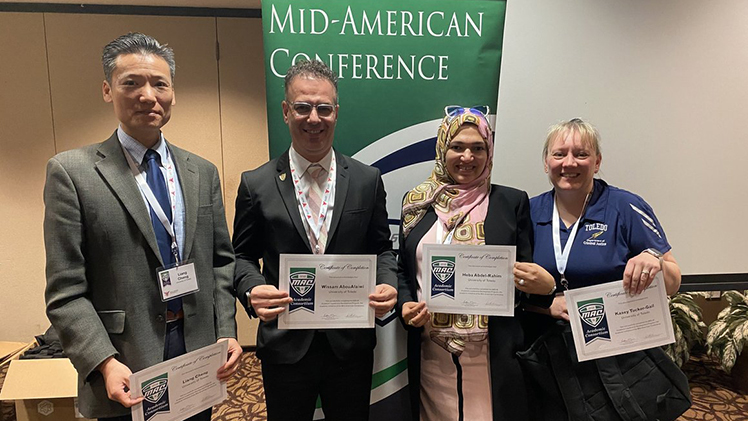Four UToledo faculty members have successfully completed the MAC Academic Leadership Development Program (ADLP), the Office of the Provost recently announced.
Dr. Heba Abdel-Rahim, an associate professor in the Department of Accounting in the John B. and Lillian E. Neff College of Business and Innovation; Dr. Liang Cheng, professor and chair in the the Department of Electrical Engineering and Computer Science in the College of Engineering; Dr. Wissam AbouAlaiwi, a professor in the Department of Pharmacology and Experimental Therapeutics in the College of Pharmacy and Pharmaceutical Sciences; Dr. Kasey Tucker-Gail, a professor of criminal justice in the College of Health and Human Services.

UToledo faculty, from left, Dr. Liang Cheng, Dr. Wissam AbouAlaiwi, Dr. Heba Abdel-Rahim and Dr. Kasey Tucker-Gail completed the MAC Academic Leadership Development Program.
The MAC Academic Leadership Development Program began in 2017 to help identify, develop, prepare and advance faculty as academic leaders across MAC member institutions. The initiative features two key components: involvement in a leadership development program at the fellow’s home institution and participation in monthly developmental meetings with all MAC Fellows.
“Participants in the MAC Academic Leadership Program gain invaluable skills in strategic decision-making, effective communication and team collaboration,” said Jeanne Kusina, UToledo MAC ALDP liaison. “The program not only enhances their leadership capabilities but also cultivates a strong network of talented professionals, equipping them to drive positive change within their academic institutions and beyond.”